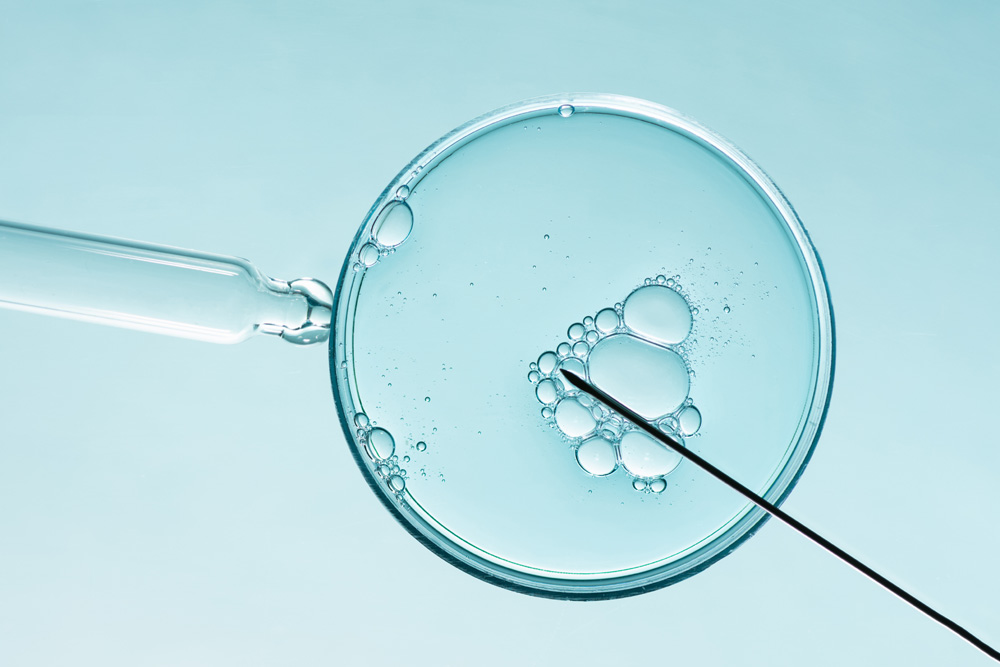Talking About the F-Word — Fertility: What Your Diagnosis From the Fertility Doctor Really Means

This is a hard conversation to have, but unfortunately, it’s necessary.
You know, the conversation about the F-word — Fertility.
If you are struggling with infertility, we want you to know you are not alone. In fact, one in six men and women struggle with infertility at some point in their life. Also, ladies don’t blame yourselves. In couples who are unable to get pregnant, ⅓ is because of the woman, ⅓ is because of the man, and ⅓ is unknown.
If you have recently received a diagnosis from the fertility doctor, you’re probably feeling overwhelmed and confused. We’re here to explain what your diagnosis means, and what options there are to have that baby you are craving to hold.
Types of Infertility
Couples who have been trying to conceive for a year are encouraged to see a specialist. This isn’t to say you won’t ever get pregnant on your own, but it may be a sign that there is something amiss.
There are different degrees of infertility. It’s important to understand where you fit in.
Sub-Infertility
This is when a couple is less fertile than the average couple. If you are sub-fertile, it just means that you may have to try a little harder to get pregnant.
Issues such as a low sperm count in the male, or cysts on the woman’s ovaries can make it harder to get pregnant, but it could still happen.
You will need to decide if you want to be patient and “see what happens,” or if you are ready to find other means to have a baby.
Secondary Infertility
Secondary infertility is when a couple has already had one child, but they can’t get pregnant again. Or, they keep suffering from miscarriages.
This can be stressful in any relationship. There is an expectation that after one healthy pregnancy, another one should be possible. So when it doesn’t happen right away, it can be very frustrating,
Fertility problems can arise at any time during your lifetime. Just because you had a baby in your 20’s doesn’t mean you will automatically be able to have a baby in your 30’s.
Permanent Infertility
This is when a couple has received the devastating news that they will not be able to conceive at all. This is when you should start looking into ulterior methods to have a family.
In any case, we urge you to seek a second opinion before making any final decisions.
Diagnosis From the Fertility Doctor
There are many different reasons why a couple is infertile. And sometimes it can take a while to figure out the complete picture. So, if it takes a few weeks to get a diagnosis from your fertility doctor, don’t stress.
Female Infertility
Female infertility can be caused by:
- Age-related issues such a decreased ovarian reserve
- Irregular or absent ovulation
- Poly-cystic ovarian syndrome
- Hormone imbalances
- Scarring of the Fallopian Tubes
- Pelvic Adhesions
- Endometriosis
- Uterine fibroid
- Clotting disorders
- Recurring miscarriages
And unknown causes — remember ⅓ of the cases may never be diagnosed.
Male Infertility
Male infertility can be caused by:
- Azoospermia — complete absence of sperm
- Oligospermia — low sperm count
- Teratospermia — abnormally shaped sperm
- Congenital absence of the vas deferens
- Genetic diseases or chromosomal abnormally
- Prior vasectomy
- Unknown causes
Fertility Treatment Options
If you or your partner have been diagnosed with any of these conditions, there are medical treatments you can try. Such as medications, artificial insemination, or invasive surgery.
If those don’t sound promising, we encourage you to look into the egg donor profiles at our incredible Hollywood egg donation agency. Egg donation is best for women who have damaged or prematurely failing ovaries; who have undergone chemotherapy or radiation; older women with poor egg quality; or women who carry genetic disorders that they don’t want to pass along.
In egg donation, eggs are obtained from an egg donor. These women are screened and have to pass several evaluations in order to qualify.
Once the eggs are harvested, they can either be implanted into your own uterus or into a surrogate.
Don’t Lose Hope
If you have recently seen a fertility doctor and didn’t receive the news you wanted, there’s still hope.
We have helped many couples find the perfect egg donors and assisted them in their journey to grow a family.
So don’t hesitate to contact us. We get it — we’ve been there. We understand this is a sensitive time and we want to be there for you. Every step of the way.


